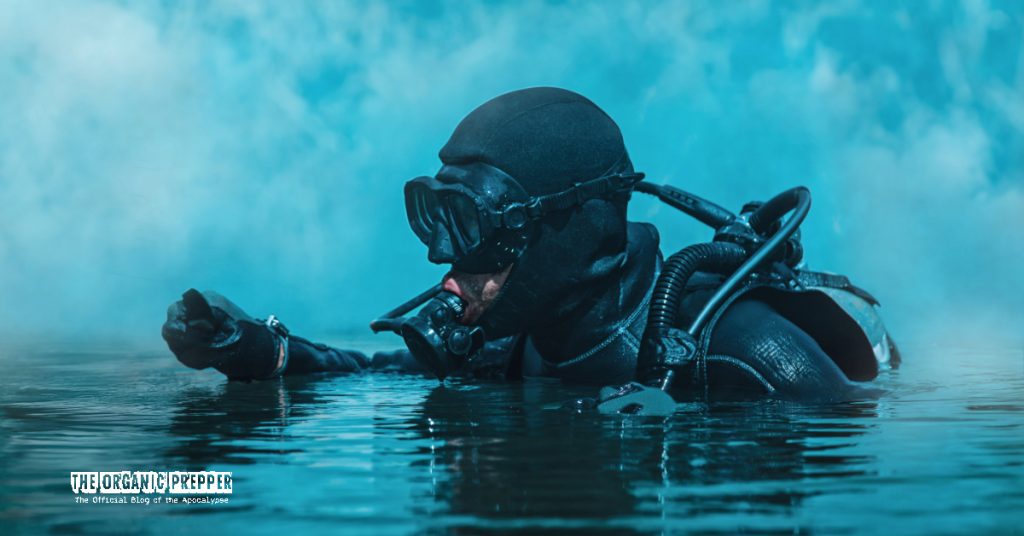If you're new here, you may want to subscribe to my RSS feed. Thanks for visiting!
Mindfulness is one of those terms that gets thrown around a lot these days, but what is it? A lot of folks wouldn’t hear that term and think, “Wow, that person practicing mindfulness is one of the most bad to the bone people around!” But did you know some of the toughest people in the world practice it regularly? This list includes everyone from Navy Seals, and other branches of the military (both in the US and other countries), the FBI, and many other high-stress jobs such as surgeons.
If so many people working in professions that are considered high-stress and can often be life-or-death situations have adopted mindfulness, there’s probably a reason. So, what is it?
Well, according to the Oxford Dictionary, this is the definition:
mind·ful·ness
noun
For the purpose of this article, we’re going to go with the second definition. In other words, mindfulness is being in the present moment (aka not agonizing over what could happen and what already has happened) and accepting what you have to go through in this moment.
So, how does mindfulness relate to prepping?
Being mindful allows you to be a lot more aware of what is happening around you, and in an emergency situation, it could make the difference between life and death.
- Ability to focus on the now: When you can be mindful, it allows you to better notice the things that are happening as they happen. It can help to prevent panic from rising, give you a level head, and respond to things as they happen faster. It can help you to be more observant.
- You’re less likely to act out of fear or on impulses: When you know why you’re having certain emotions, it can increase your awareness of how those emotions affect both your actions and behaviors, which can, in turn, help you to be less impulsive and react from a place of logic instead of fear.
- Adapting to change becomes easier: Practicing mindfulness increases something called neuroplasticity. Neuroplasticity is basically your brain’s flexibility when it comes time to change. In most prepping situations, you can meet change and the unexpected at every turn. Practicing mindfulness regularly increases your neuroplasticity, allowing you to adapt much more easily.
- Mindfulness can help decrease trauma and PTSD: Mindfulness is a very common tool used to help relieve symptoms of PTSD and can, in fact, help to lessen the severity of PTSD after a traumatic event.
A lot of this goes hand in hand with the mental strategy that Daisy suggests for surviving emergencies and crises.
How to practice mindfulness and why you should do it before you need it
Mindfulness skills are kind of like a muscle. The more you use them, the stronger they’ll be, and the easier it will be to utilize these skills in a high-emotional setting where most people are panicking.
If you’re in a stressful or dangerous situation, your ability to keep your calm and think while things are chaotic could very well save your life. Mindful practice can help you to get ahold of your panic and think clearly. It can allow you to observe things that you might miss if you are in a state of fear and high anxiety. It can aid you in focusing on your survival, not your terror. It’s a thing that just goes hand in hand with preparing for emergencies and better yet, it doesn’t cost you a penny.
Here are some examples of tactics you can use:
Box Breathing or Tactical Breathing
This is one of my favorites. It can be done anywhere and in any situation. You can count the seconds in your head, or you can trace the shape of the box as you do it. Whatever works best for you.
Grounding
Visualization:
While these are only a few examples of mindfulness techniques, there are hundreds upon hundreds of different strategies and tools that can be used. An important thing to remember is that not every tool will work for every purpose or in every situation. Some strategies may work great for you but not for your partner or vice versa.
It’s important that you find at least a few that work for you and start practicing. Most of these tools can be done in as little as 30 seconds or as long as you want. Being able to practice them in your day-to-day will allow it to become a habit, a second nature, or a tool you can pull out at a moment’s notice, even when frazzled by a high-stress situation.
What do you think about mindfulness?
With all the stigma around mental health issues such as anxiety, many people have yet to try these techniques. On the other hand, some people may be doing them already without being aware that they’re practicing forms of mindfulness.
Is there anything you do already in your day-to-day life that pulls your attention forward and puts you fully in the here and now? With all the versatility and the extreme usefulness, is mindfulness a technique you’ll be adding to your toolbox of skills? Are there any you have tried that haven’t worked for you? What has worked for you?
Let’s discuss it in the comments!
About Chloe Morgan
Chloe Morgan grew up living with a tight budget in a prepper household. Chloe lives in Northern Ontario, Canada, with her dog, Rhea.
Check out her work on TheOrganicPrepper.com and TheFrugalite.com where she writes about food, frugality, finances, and self-reliance, or her work on Medium, where she writes about lifestyle, mental health, and writing.
















2 Responses
Excellent videos to share – Breathing exercises can definitely help with stress reduction!
This is one of the best articles Ive seen on OP. Wonderfully concise and complete. All these techniques are super useful.